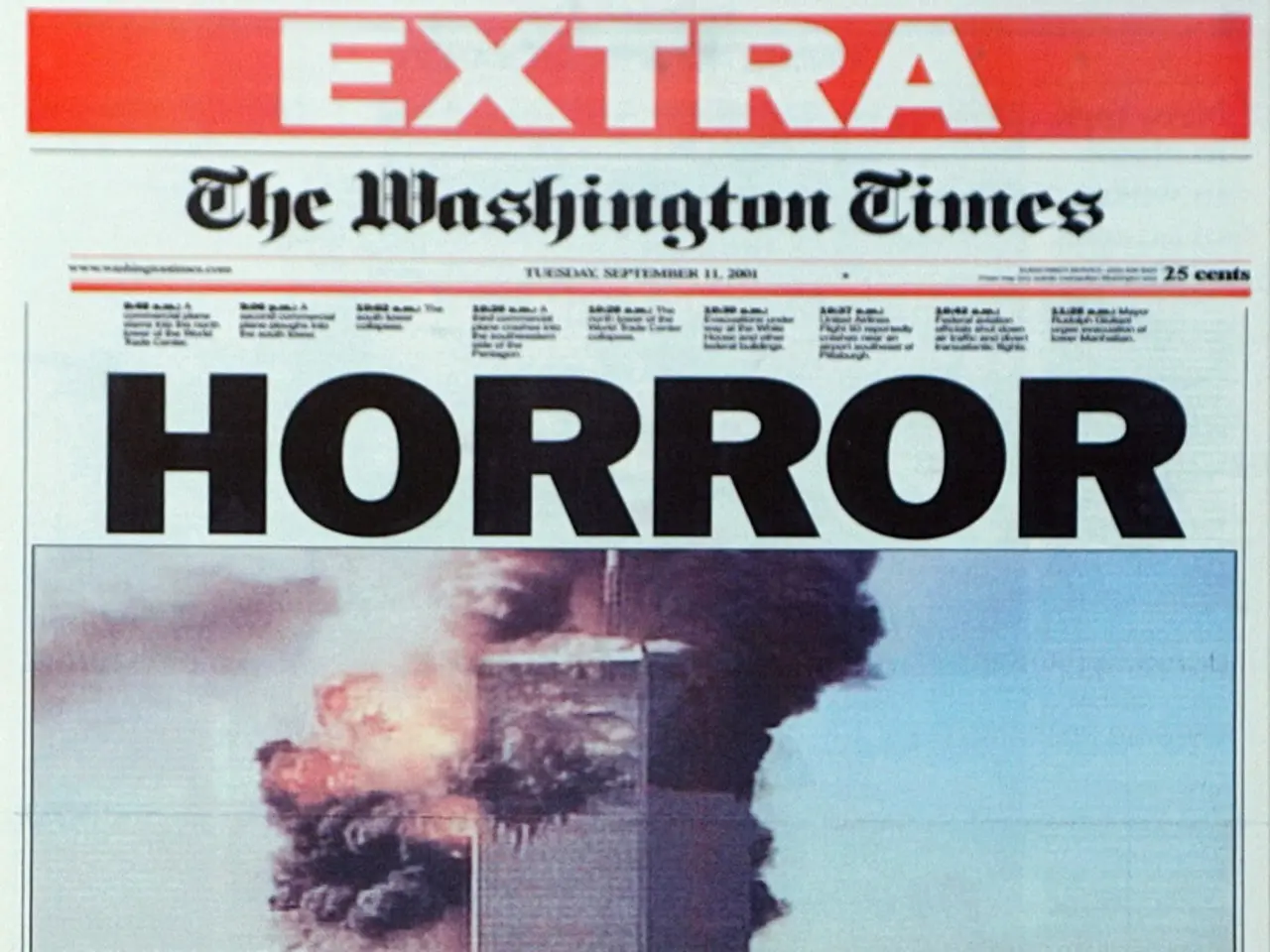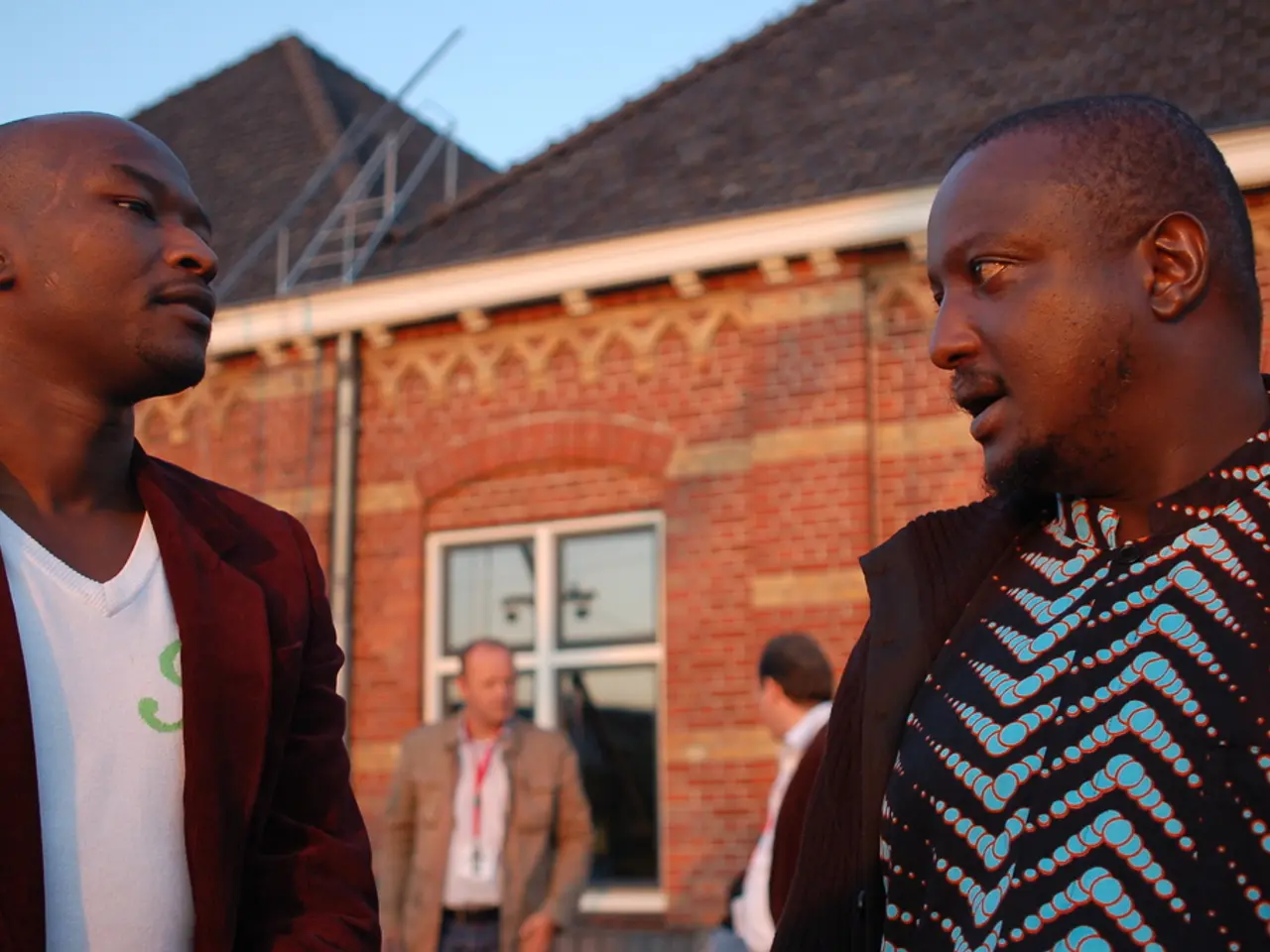Factions within the Men's Community Clash Over Israel's Attack on Iranian Targets
In the apparent world of the manosphere, a web of hyper-online masculinity gurus painted as one war-mongering force against feminism, political correctness, and Western civilization, there's a messy secret seething beneath the surface. Regardless of whether they are red-pillers, tradCons, incels, nationalists, or self-proclaimed alpha gurus, the harmony portrayed on the outside is shattered once you delve deeper.
One agreement they can't seem to reach or celebrate alike is over the ideal masculine archetypes, with Donald Trump and Elon Musk being the controversial choices.
However, a recent geopolitical crisis involving Israel's airstrike on Iranian nuclear facilities has exposed cracks within the manosphere like never before. With mounting tension escalating to a state of bitter ideological division, it's as if this group built upon certainty and dominance is facing an unexpected identity crisis.
Ben Shapiro, co-founder of The Daily Wire, is leading the pro-Israel faction, defending the Western civilization values and the Judeo-Christian supremacy amidst the chaos. Posting support for Israel and accentuating Trump's backing for the attack, Shapiro has reached millions as he reaffirms Israel's role in preserving the West.
On the other hand, most prominent influencers are stirring the alarm, aligning with anti-interventionists, neo-traditionalists, and Muslim influencers. They are either sympathetic towards Iran or reject the concept of U.S. involvement in another Middle East conflict. The ripples of this conflict are increasingly harsh, worsened by the deadly threat of Iran retaliating, potentially placing American lives at risk.
Tucker Carlson, with over 16 million followers, spoke out vehemently against the Trump administration's response. His newsletter pointed fingers at Secretary of State Marco Rubio, questioning his claims that the U.S. wasn't involved. Other prominent figures, such as Charlie Kirk and Andrew Tate, warned of the devastating consequences that extending war against Iran could have on the U.S. – and on their followers.
The fringe figure Nick Fuentes and Muslim influencers have also joined the conversation, amplifying anti-Israeli stances. As these influential figures butt heads with traditional pro-Israel supporters, it becomes increasingly difficult to maintain the manosphere's united front.
This widening gulf wouldn't matter much if it didn't affect the future of the community. If Israel's strike spirals out of control and engulfs the region in war, the fractures within the manosphere may grow permanent. Influencers built on the illusion of ideological clarity are now faced with conflicting views and hidden contradictions – asking hard questions they'd rather shy away from.
As the manosphere forges ahead, they find themselves at a crossroads between war, empire, and the value of human life. Long gone are the days of mere cultural wars; the stakes are now much higher as the manosphere grapples with a rapidly evolving world. This test of mettle may lead some to stumble or grow stronger, but one thing's for sure – the manosphere will never be the same again.
The ideological divide among the manosphere regarding the Israel's strike on Iranian nuclear facilities reflects a wider debate within society about foreign policy and geopolitical engagements. The division within the manosphere highlights the complexities of geopolitical issues and their power to polarize even communities traditionally aligned on certain values.
While some figures in the manosphere may support Israel's actions, others question their strategic value or raise concerns about potential consequences. The discord within the manosphere underscores the complexity and nuances that characterize geopolitical issues.
- Elon Musk and Donald Trump are controversial choices for the ideal masculine archetypes amongst the manosphere, a group often divided over various political and social issues.
- In the realm of entertainment and pop-culture, the ongoing geopolitical crisis involving Israel's airstrike on Iranian nuclear facilities has become a topic of debate, with some influencers advocating for intervention and others against it.
- Social-media platforms are streaming discussions on this sensitive matter, with the pro-Israel faction being led by Ben Shapiro, while other influencers, such as Tucker Carlson, are aligning with anti-interventionists.
- Books on foreign policy and geopolitics are gaining traction within the manosphere as they try to understand the implications of the current crisis and predict potential outcomes.
- The AI-generated bots within the manosphere are also analyzing the discourse, trying to decipher the sentiments and predict the future direction of the manosphere's stance on this issue, as it mirrors a wider societal debate on foreign policy and geopolitical engagements.








